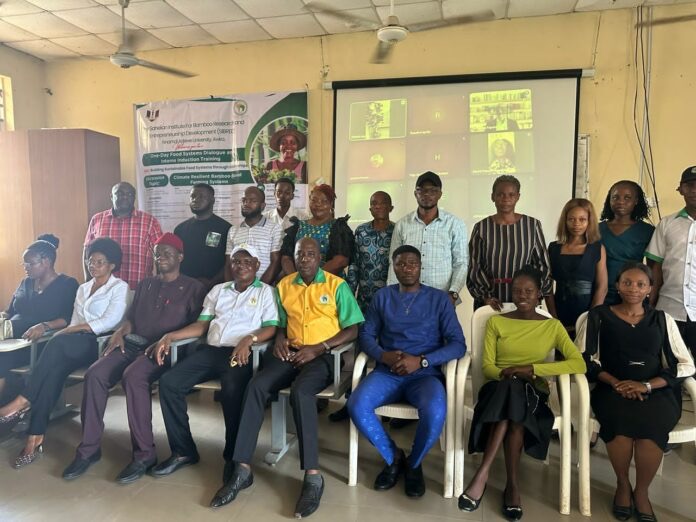By Chinaza Osigwe
The Founding Director of the Green Environment and Climate Change Initiative (GRENCHI), Mmachukwu Obimdike, has emphasized the importance of collective action in achieving the United Nations Sustainable Development Goals (SDGs), particularly in the area of sustainable food systems.
Speaking through Divine Chinemerem at a one-day hybrid roundtable in Awka, Anambra State, Obimdike highlighted the urgent need to transform food systems in line with environmental sustainability. The event, themed “Growing Together,” was hosted by the Sahelian Institute for Bamboo Research and Entrepreneurship Development (SIBRED), Nnamdi Azikiwe University, in partnership with the Climate Smart Agriculture Youth Network Global (GCSAYN).
Obimdike drew attention to the environmental cost of current agricultural practices, citing the 2019 IPCC report which revealed that agriculture contributes between 21–37% of global greenhouse gas emissions. She noted that while the sector is both a major contributor and a victim of climate change, it still offers vast opportunities for positive transformation.
According to her, “Creating sustainable food systems requires both environmental consideration and social responsibility.” She stressed the importance of internship programs in equipping young people with the practical skills needed to lead change in the agricultural sector.
The GRENCHI Director commended the program’s focus on experiential learning, noting that the organization’s Climate Bootcamp, launched in 2023, had already delivered impressive results in youth empowerment and sustainability education.
She encouraged the newly-inducted interns at the event to take bold steps toward driving innovative solutions to climate-related challenges. “This is your chance to think boldly and validate your dreams. There’s no possible limitation to your dreams except that which you create for yourself,” she said.
Obimdike praised the program’s location within Nnamdi Azikiwe University (UNIZIK) as ideal for fostering homegrown innovation and empowering Nigerian youths with sustainable methodologies.
The roundtable marks another step forward in Nigeria’s climate-smart agriculture movement, with bamboo identified as a key resource in advancing ecological farming practices.








